Latest CBSE Updates 2025
The Central Board of Secondary Education (CBSE) has rolled out a series of landmark reforms and policy updates that are set to significantly impact schools, administrators, students, and parents across India. From stricter compliance measures to progressive assessment models, these reforms align closely with the National Education Policy (NEP) 2020 and aim to modernise India’s school education system.
1. CBSE Update – APAAR ID Now Mandatory for Classes 9–12
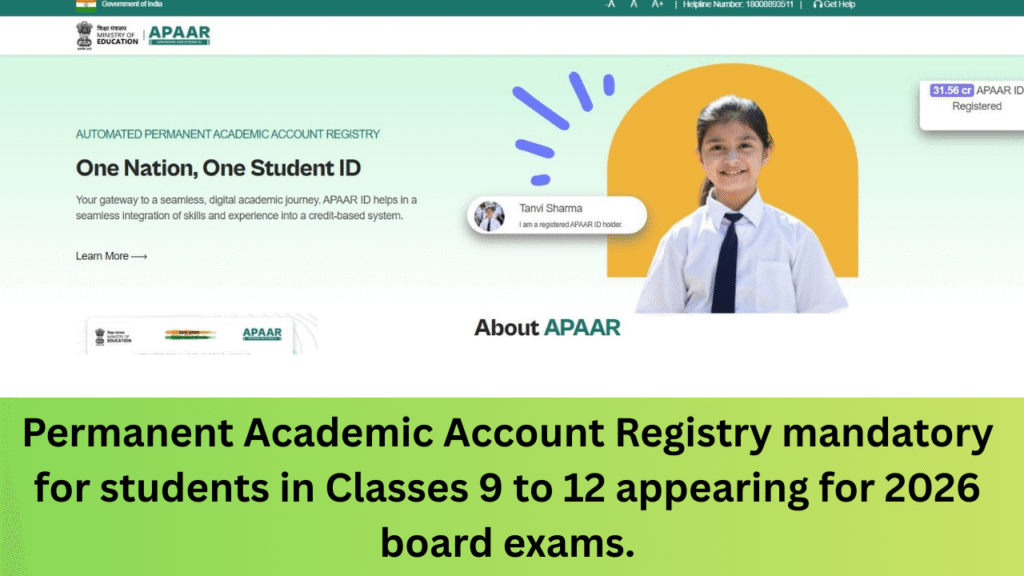
In a major move towards digital integration and transparency, CBSE has made the APAAR ID (Automated Permanent Academic Account Registry) mandatory for students in Classes 9 to 12 appearing for the 2026 board exams.
- Each student will be issued a 12-digit lifelong academic ID, ensuring a centralised record of their educational journey.
- Schools have been instructed to generate APAAR IDs during registration and LOC submissions. Without it, students will not be allowed to appear for exams.
- The system integrates with DigiLocker and Academic Bank of Credits, preventing duplication and fraud.
- While aimed at accountability and ease of verification, the move has also sparked data privacy concerns, with experts demanding stronger safeguards for sensitive student information.
2. CBSE Updates – High-Definition CCTV with Real-Time Audio-Visual Monitoring
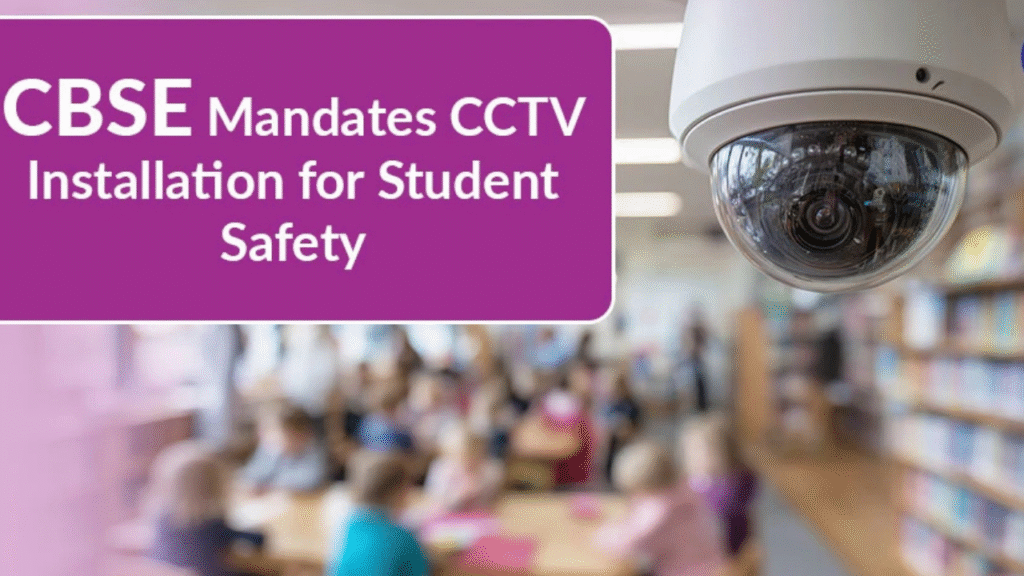
CBSE has mandated the installation of HD CCTV systems across all affiliated schools to strengthen student safety and campus accountability.
- Cameras must cover classrooms, corridors, entrances, and playgrounds.
- Schools must ensure real-time audio-visual monitoring and maintain recordings for at least 15 days.
- Surprise inspections may be conducted to verify compliance.
This step comes as part of a broader push towards enhancing child protection measures in schools.
The Struggle for Quality Education: Unmasking Indian School System
3. CBSE Updates – Section Capacity Norms Based on Built-Up Area

Addressing the challenges faced by space-constrained urban schools, CBSE has revised its section capacity norms.
- Earlier, based on land size, the norms will now be calculated using built-up carpet area.
- This gives schools greater flexibility to expand sections while ensuring safety and learning standards are maintained.
- The rule applies both to new affiliations and existing schools seeking extension.
Mughals Out, Maha Kumbh In: NCERT Books Game-Changing Curriculum Reform Redefines Indian Education
4. CBSE Updates 2025; Class X to Have Two Exam Sessions From 2026
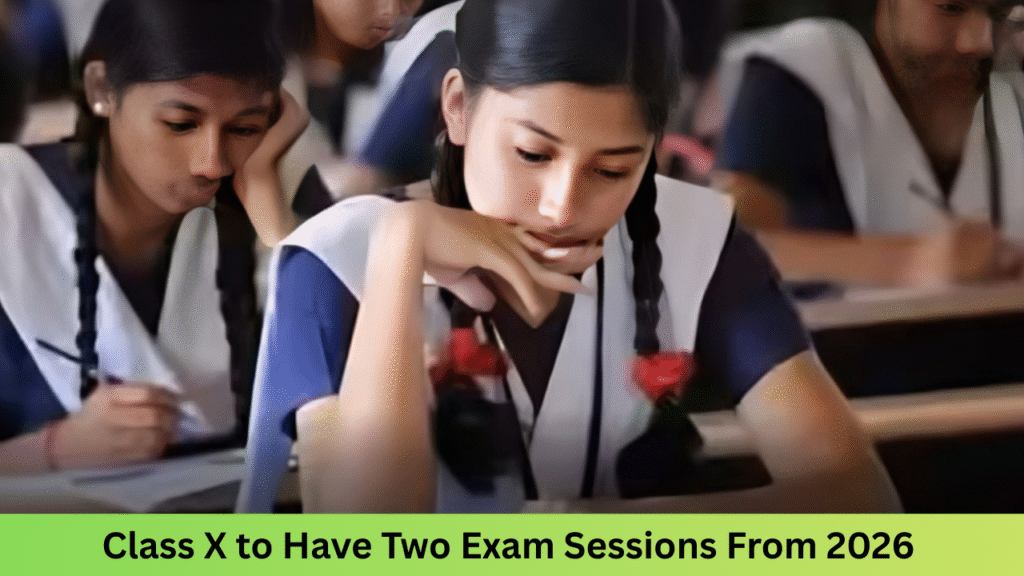
CBSE has released the sample question papers (SQPs) and marking schemes (MS) for Classes 10 and 12 for the 2025–26 academic session.
- Schools and teachers are urged to integrate these into their teaching plans for better exam preparedness.
- Importantly, from 2026 onwards, Class X students will have two board exam opportunities:
- Main Exam: February–March
- Improvement Exam: May (optional, no loss of year)
- The marking scheme will remain unchanged across both sessions.
This reform is intended to reduce exam stress and give students a fair second chance without penalising their academic year.
5. CBSE Updates 2025-Open-Book Assessments to Be Introduced for Class 9 (From 2026–27)
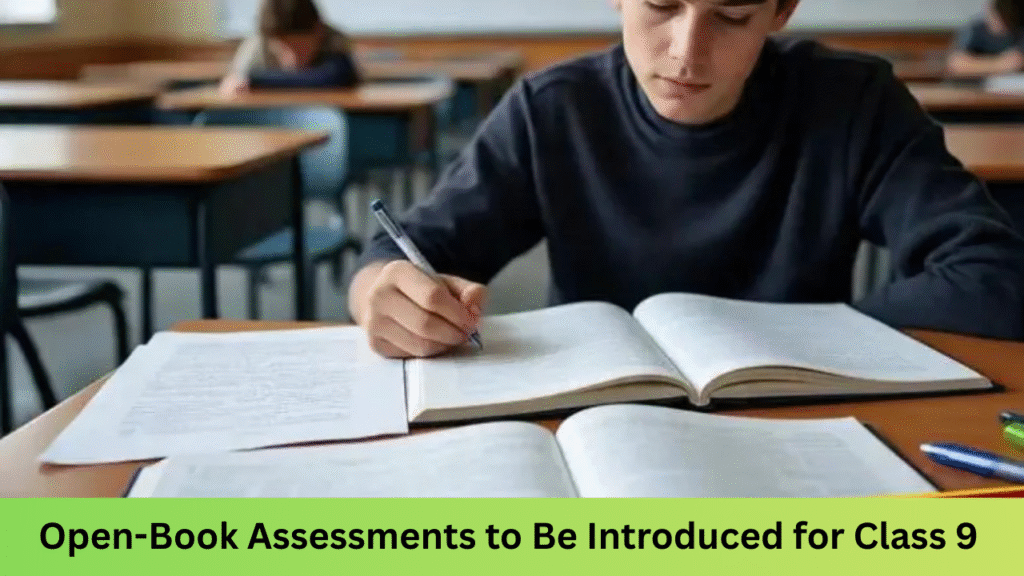
In a bold shift towards competency-based learning, CBSE has announced the rollout of Open-Book Assessments (OBAs) for Class 9 students starting in the 2026–27 academic year.
- Students will be allowed to refer to textbooks, class notes, and approved resources during exams.
- Initially, this will apply to internal assessments in subjects like languages, science, mathematics, and social science.
- The pilot studies indicated student performance ranging from 12% to 47%, highlighting the need for teacher guidance in analytical thinking.
- Educators stress that exam papers must be analytical and application-oriented, otherwise the open-book model risks becoming ineffective.
This initiative reflects a global trend of moving beyond rote learning and testing students’ problem-solving, application, and critical reasoning skills.
Revolutionizing Education: India’s New Education Policy 2024 for a Future-Ready Generation
Conclusion
With these CBSE updates and sweeping reforms—APAAR ID integration, mandatory CCTV monitoring, section norm flexibility, dual exam sessions, and open-book assessments—CBSE is pushing Indian schools into a new era of accountability, safety, and progressive learning.
For schools, these changes demand urgent compliance and proactive planning. For students and parents, they promise greater transparency, reduced exam stress, and a more holistic education system.
As these policies take shape over the next two academic sessions, stakeholders must stay updated and prepared for a transformational shift in India’s school education landscape.
CBSE updates 2025, CBSE APAAR ID mandatory, CBSE CCTV rules 2025, CBSE section capacity norms, CBSE sample papers 2025–26, CBSE two exam sessions 2026, CBSE open book exam policy 2026–27, CBSE reforms NEP 2020, CBSE affiliation rules 2025, CBSE latest circulars
Discover more from
Subscribe to get the latest posts sent to your email.

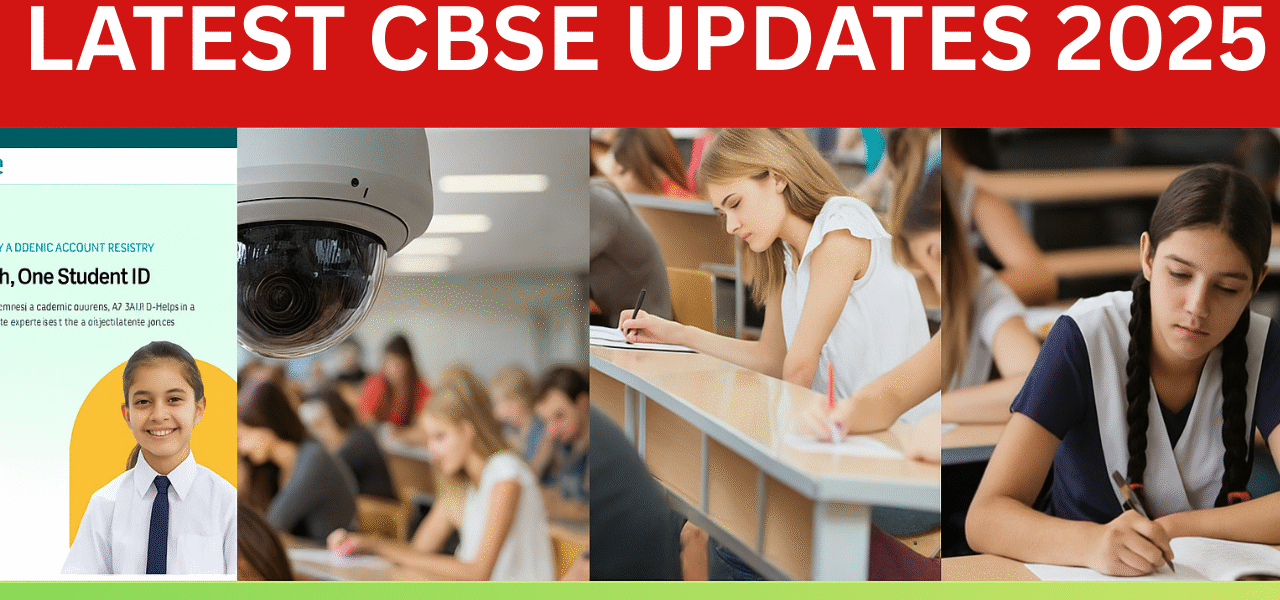









4 COMMENTS